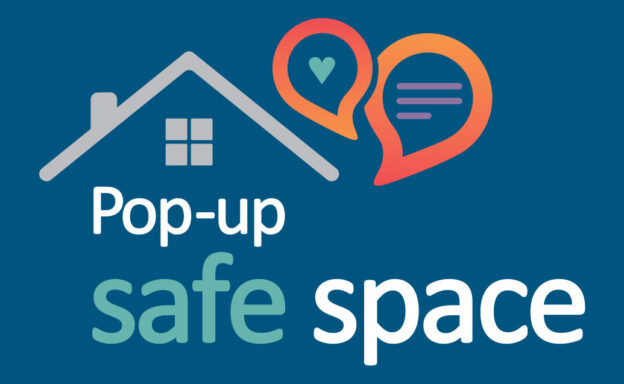Roses in the Ocean CEO, Bronwen Edwards, and former Strategic Advisor, Carrie Lumby, explain the essence of the Pop-up Safe Space service model in the video below.
Report: A safe spaces narrative – Emerging outcomes of Safe Spaces co-design
Discussion paper: A national safe spaces network – the dream, the reality, the opportunity
As a direct result of the systemic advocacy of people with a lived experience of suicide, there has been promising government investment in non-clinical, alternative supports for people impacted by suicide in Australia. Roses in the Ocean has played a central role in the conceptual and practical development of these innovative safe space models at a state and national level.
While witnessing consistent barriers first-hand, Roses in the Ocean has clearly identified the common themes that have emerged about what local communities are looking for and wanting from a safe space. Our expertise in working with people with a lived experience of suicide, demonstrated capacity to develop and lead co-design initiatives, and our role in establishing the emerging Suicide Prevention Peer Workforce combine to bring a unique set of expertise to the local co-design of safe spaces.
The Pop-up Safe Space model has the versatility to look, feel and operate in different ways depending on the specific and evolving needs of a community. Considerations include immediacy of need, demographics, priority population groups, geographical challenges, what an individual community wants, and what they have access to in terms of physical space.
Roses in the Ocean has launched two Pop-up Safe Space pilot projects:
1. Roses in the Ocean will empower and assist communities to establish Pop-Up Safe Spaces in a range of settings:
- Pop-up Safe Spaces in existing business venues after hours
- Roses in the Ocean will establish national and regional partnerships with organisations who are willing to donate venues out of their standard working hours. Examples include coffee shop chains, sports stores like Anaconda or BCF, non-government organisation office space and others.
- Pop-up Safe Spaces in a mobile van/bus
- Regional, rural, and remote communities face significant practical barriers to help seeking and service access. A mobile Safe Space has the potential to take appropriate and responsive support to various locations in a region with a well communicated weekly timetable.
- Pop-up Safe Spaces within specific demographic locations (aged care, universities)
- A safe space could be set up on a regular timetable within aged care residencies, on campus at universities, Defence Bases, and other places where people may not easily access, or be willing to attend a safe space in a community setting. The Pop-Up Safe Space comes to them instead.
2. Roses in the Ocean will also pilot our signature Pop-up Safe Space – deployed and delivered by Roses in the Ocean to meet short term immediate community need, set up for a limited time-period (approx 4-8 weeks) and rapidly mobilised in response to urgent and immediate community need for intensive support, such as:
- A high-profile suicide in community
- A number of suicides within a community
- High levels of distress associated with Covid-19
- Natural disasters
The recent Productivity Commission Inquiry Report, the Final Advice of the Prime Minister’s Suicide Prevention Advisor, and the Victorian Royal Commission into Mental Health, all highlight the absolute necessity that people with a lived experience of suicide are actively and meaningfully involved in all aspects of system reform, including service design and delivery.
Safe spaces are perhaps the most realised expression of Roses in the Ocean’s commitment to reduce emotional distress and pain, and are a celebration of the organisations ability to deliver outcomes informed and designed by people with a lived experience of suicide.
For more information please email [email protected].
